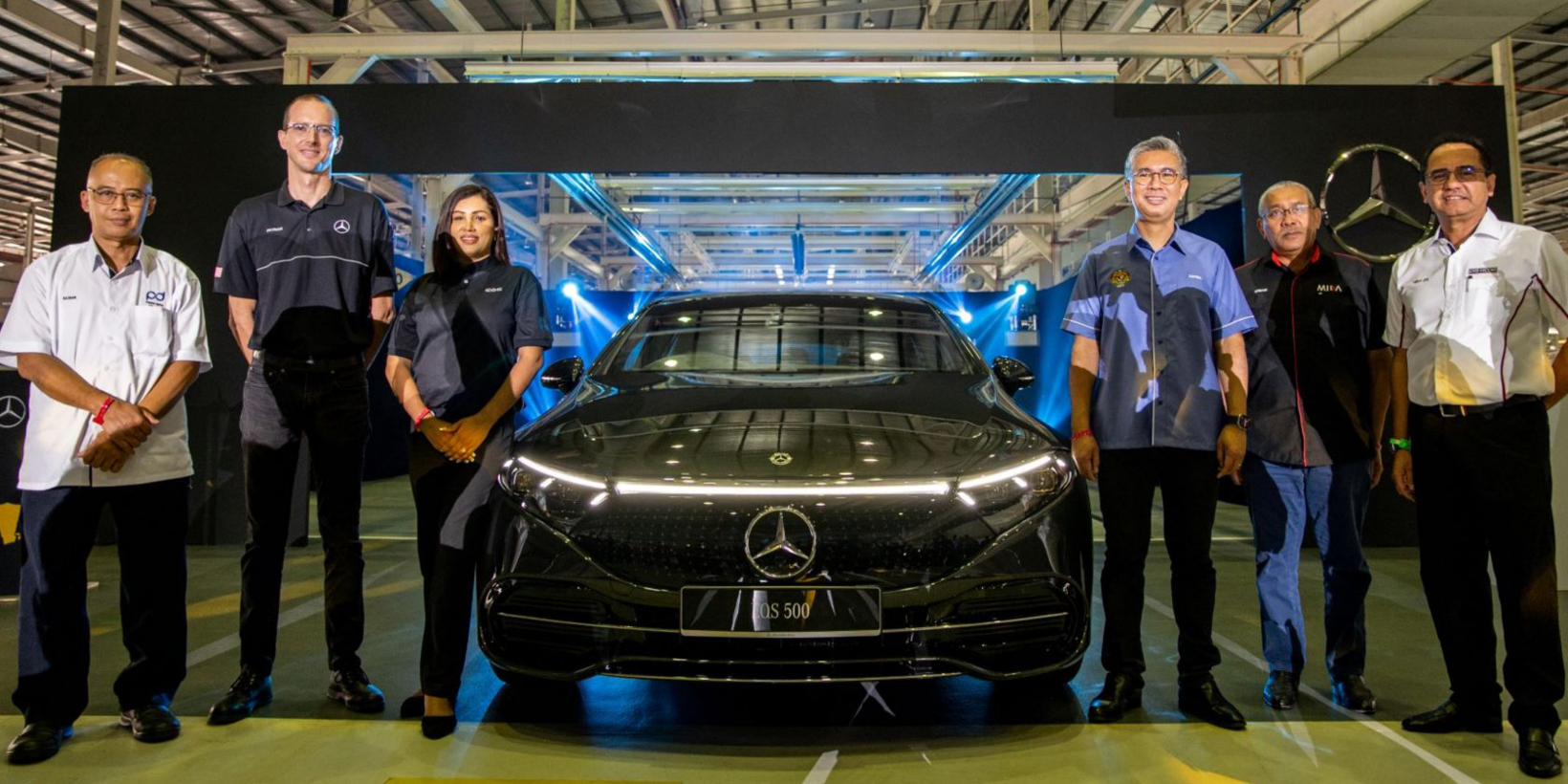تهدف مرسيدس إلى كهربة كاملة في ماليزيا بواسطة 2030
Luxury automaker مرسيدس بنز Group has set its sights on Malaysia as a key market, مع خطط طموحة لتكسير تشكيلة سيارتها بالكامل داخل البلاد بحلول العام 2030. في وقت سابق من هذا العام, حققت مرسيدس-بنز معلم أن تصبح أول شركة لصناعة السيارات تقدم السيارات الكهربائية المنتجة محليًا في ماليزيا.

(صورة: Mercedes Benz EQS 500)
أثبتت هذه الخطوة الاستراتيجية مثمرة, كما شهدت مرسيدس بنز مذهلة 200 percent surge in سيارة كهربائية (EV) المبيعات في ماليزيا هذا العام, تجاوز معدل النمو العالمي للمجموعة 120 في المئة في النصف الأول من العام. على الرغم من أن هذا النمو هو من نقطة انطلاق متواضعة نسبيًا, إنه مهم. تشكل السيارات الكهربائية النقية الآن تقريبًا 11 في المئة من مبيعات مرسيدس بنز العالمية. لافت, في ماليزيا, حساب مبيعات EV هذه لحوالي 30 في المئة من تشكيلة العلامة التجارية الإجمالية.
بيتينا بلانجبر, نائب رئيس مرسيدس بنز ماليزيا, أبرز في مقابلة حديثة, “هناك اهتمام متزايد بالسيارات الكهربائية, with more players entering the electric vehicle market and increasing demand. We are highly optimistic about achieving this target in Malaysia.”
In an effort to boost the EV ecosystem and incentivize adoption, Malaysia is directing its efforts towards ensuring that electrified vehicles, including hybrids, comprise 15 percent of the national car fleet by the year 2030. خلال العام الماضي, global EV giants such as BYD and Tesla have introduced their products in Malaysia. لكن, Mercedes-Benz’s premium market positioning sets it apart in an increasingly competitive landscape. The brand boasts one of the most extensive electric vehicle lineups in Malaysia.
Among its offerings, the locally-assembled Mercedes-Benz EQS 500 4Matic stands out with a starting price of RM649,000 (US$142,000), making it the most expensive electric vehicle in the Malaysian market. بالمقارنة, the Tesla Model Y begins at RM199,000 (US$43,400), the BYD Dolphin at RM99,900, and the Atto 3 at RM149,800.
Mercedes-Benz has slated the launch of two additional electric vehicles in Malaysia for the final quarter of 2023. The brand is committed to achieving full electrification by 2030 and net-zero emissions by 2039, as market conditions permit.
Plangger emphasized that Mercedes-Benz’s focus is more on delivering “value” to customers as a luxury brand rather than solely on price considerations. She elaborated, “في نهاية المطاف, it’s not just about price; it’s about the value you can provide customers at that price point. We prioritize delivering the best technology and offering our customers the finest experience.”
في وقت سابق من هذا العام, Hap Seng Star, Mercedes-Benz’s primary retail partner in Malaysia, announced an agreement with Mercedes-Benz Malaysia to transition its current dealership model into an agency mode. This shift aims to facilitate more direct interactions with customers and grant the brand greater control over pricing.
To bolster charging infrastructure, Mercedes-Benz is collaborating with Gentari Bhd, the green transportation arm of Petronas, and EV Connection Bhd. The goal is to expand the brand’s charging network across Malaysia. The company has already established five charging stations along highways, including Malaysia’s inaugural electric vehicle charging center. By the end of this year, Mercedes-Benz aims to install 14 DC charging stations at its retail outlets.
 السيارات في الصين
السيارات في الصين